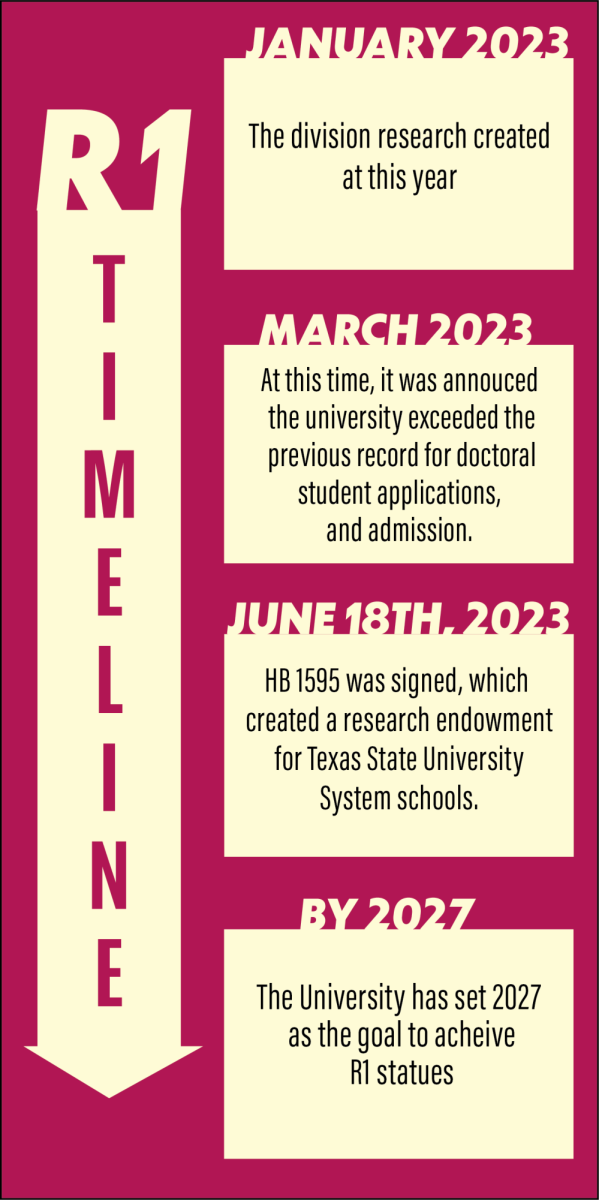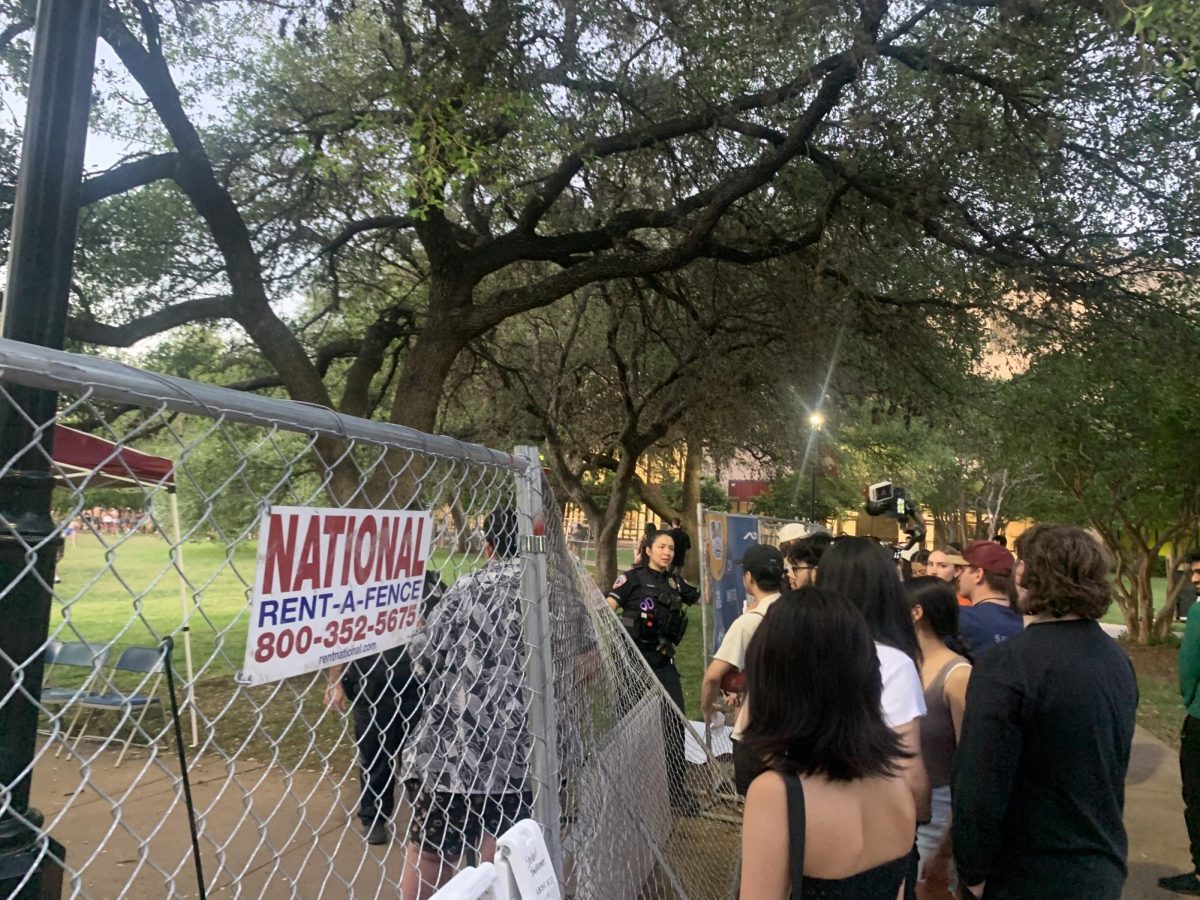On June 18, Texas Governor Greg Abbott signed HB 1595, which will now be up for public referendum in the November election. If the public referendum passes, the bill would grant billions of dollars in funding to public universities across Texas.
The funding comes at the same time that Texas State University is making it’s “Run for R1,” a push to become a top tier research institution in America.
“I’m excited about about [HB 1595] because it provides some very valuable resources that help us advance our mission,” Texas State President Kelly Damphousse said.
HB 1595, sponsored by Rep. Greg Bonnen, would create the Texas University Fund TUF), an endowment aimed at increasing the research capabilities of certain universities across the state such as Texas State University, Texas Tech University and the University of Houston.
“We’re not going to have an opportunity to do this very often. The benefit of this could be most dramatic when you start to work 20, 30, 40, 50 years from now, and people will actually look back at this and say, ‘That was transformational. That fundamentally changed higher education in the state of Texas,'” Bonnen said in a committee meeting.
Currently, Texas State is what is considered a R2 research institution, which is the second highest tier of research institution. To achieve R1 status, the university would have to increase the number of doctorate programs offered and the number of full time researches at the university.
“We’re currently graduating about 20 or so PhD students a year. We have 12 PhD programs and we just applied for 11 new PhD programs in the coming year, which means we’ll double the number of Ph.D students,” Damphousse said. “Our goal is to have 100 Ph.D graduates per year and 100 postdocs.”
Damphousse created a commission, the Presidential Commission On the Run to R1, to set the timeline and create strategies for the “Run to R1.” The current timeline for the commission has R1 status being achieved in the year 2027.
“The Presidential Commission on the Run to R1 is charged with helping Texas State achieve R1 by 2027. The commission will conduct a comprehensive review of our current strategies, identify strategies that need to be sunset, conduct benchmarking and data analysis, determine which metrics are most important in achieving R1 status, set aggressive targets, identify strategies and resources needed to meet those targets, and prioritize those strategies and resources,” The Presidential Commission on the Run to R1’s webpage reads.
The university reaching R1 status would require a significant increase in spending. The universities goal to reach R1 includes having 100 PhD graduates a year and maintaining 100 full-time post-doctoral researchers. To achieve those goals with current funding levels would require clever accounting, but with the extra funding from HB 1595, university staff believe it would be a more attainable goal.
“So right now we’re using our reserves and we’re trying to shift around money and be more efficient on how we spend money so we can you know, spend more money on graduate students and spend more money on our research faculty too,” Damphousse said.
According to university staff, an increase in the status of the university from R2 to a R1 institution would increase the value of a degree from any point in the history of Texas State’s history, both current and former.
“All those things are meant to raise our national profile,” Damphousse said. “When we raise our national profile it raises and increases the value of that degree, even for those folks who have a Southwest Texas State University degree.”
Were the TUF to become law, the extra funding would allow the recruitment of more top level faculty, postdoc researchers and graduate students, which could facilitate the creation of cutting edge graduate and undergraduate programs.
“With a graduate degree from an R1 university, research-driven students can expect to go out and be leading scholars in their area, and they will be on the forefront of the next generation of people who are discovering great new ideas and changing and shaping the world,” an article from West Virginia State University said.
More information on the “Run to R1” is available here.

























